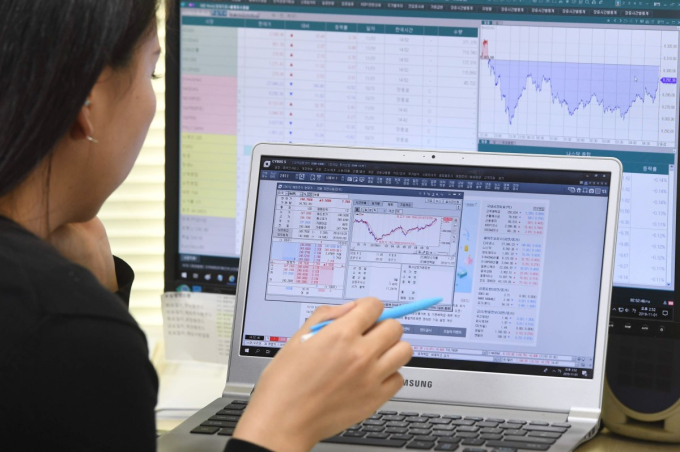South Korean investors ramp up US stock purchases
By Nov 09, 2020 (Gmt+09:00)
LG Chem to sell water filter business to Glenwood PE for $692 million


Kyobo Life poised to buy Japan’s SBI Group-owned savings bank


KT&G eyes overseas M&A after rejecting activist fund's offer


StockX in merger talks with Naver’s online reseller Kream


Mirae Asset to be named Korea Post’s core real estate fund operator


Korean investors scooped up a net $398.5 million in overseas shares between Nov. 1 and 6, of which US stocks accounted for the lion's share at $388.7 million, according to the Korea Securities Depository on Nov. 9.
This is 42% more than the net purchases made earlier in October. Even the 2.44% drop in the Nasdaq Composite on October's final trading day failed to keep domestic investors from buying.

The purchases were not ungrounded as the choice of most-purchased shares indicated deliberation to reduce risk. US-based electric carmaker Tesla Inc. was the most-bought stock with Korean investors purchasing a net $86.9 million in Tesla shares. Following Tesla were Chinese electric vehicle car company NIO Inc. ($53.4 million), US-based e-commerce giant Amazon.com, Inc. ($33.8 million) and Bank of Montreal ($15.3 million).
Meanwhile, tech heavyweights such as Apple, Google and Facebook, usually large cap favorites, failed to attract Korean investors. In fact, a net $4.6 million worth of Apple stocks were dumped, reflecting unease around potential changes that could follow the election, such as increased corporate tax, or possible spin-offs due to beefed-up antitrust laws.
Meanwhile, Korean investors increased investments in electric vehicle sectors, an industry seen to benefit from a Biden win, while maintaining a cautious stance on major tech companies that posed uncertainty.
Also, exchange-traded funds (ETF) landed on the most purchased list, seen as an investment strategy aimed at diversifying risk. The ETF INVSC QQQ S1 fund that follows the Nasdaq 100 Index came in fifth place with net purchases of $13.3 million.
Write to Yun-sang Koh at kys@hankyung.com
Danbee Lee edited this article.
-
 Shipping & ShipbuildingHanwha Ocean shares sink after KDB's sale of 4.2% stake
Shipping & ShipbuildingHanwha Ocean shares sink after KDB's sale of 4.2% stakeApr 29, 2025 (Gmt+09:00)
-
 EnergySouth Korea nears Czech nuclear deal; Doosan, related stocks fly high
EnergySouth Korea nears Czech nuclear deal; Doosan, related stocks fly highApr 25, 2025 (Gmt+09:00)
-

-
 Business & PoliticsSeoul, Washington agree on July tariff deal framework in '2+2' trade talks
Business & PoliticsSeoul, Washington agree on July tariff deal framework in '2+2' trade talksApr 25, 2025 (Gmt+09:00)
-



